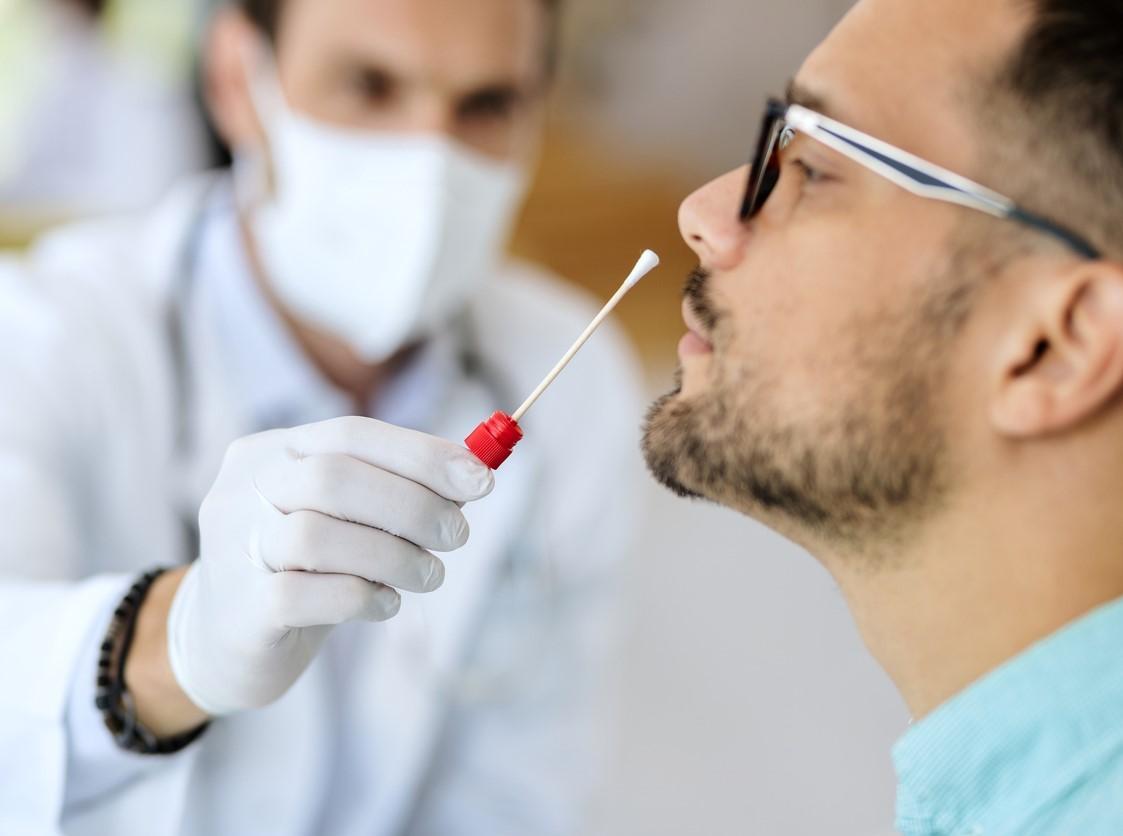Two studies published today in Science Translational Medicine differ on whether COVID-19 vaccine boosters can trigger an immune response in mucous cells in the nose and mouth—a longtime goal of vaccine researchers.
Despite the disparate findings, editorial writers say mucosal immunization could go further than current intramuscular COVID-19 vaccines by preventing infection altogether, disrupting viral transmission and the ability of the virus to evolve.
Refinement of current vaccines
For the first study, researchers in Belgium and the Netherlands assessed mucosal SARS-CoV-2 neutralizing antibody responses in the sera and nasal secretions of 183 people after receipt of two doses of the AstraZeneca-Oxford COVID-19 adenovirus vector-based vaccine (99 participants) or the Pfizer/BioNTech mRNA vaccine (84) and after receipt of at least one dose of the Pfizer or Moderna booster vaccine.
Future research should focus on modifications to vaccination strategies that promote robust induction of longer-lasting cellular mucosal immunity.
The first vaccine doses were administered in February or March 2021 and the boosters from September 2021 to January 2022.
“To prevent infection by respiratory viruses and consequently limit virus circulation, vaccines need to promote mucosal immunity,” the researchers wrote, noting current vaccines’ ability to protect against severe disease but not infection. “Failure to achieve this allows for continued virus circulation with the risk for the emergence of new variants.”
The team found that mRNA boosters triggered production of neutralizing antibodies (NAbs) against SARS-CoV-2 in nasal secretions to a greater extent than primary mRNA vaccination at 6 months, with waning thereafter. Nasal and serum levels of the antibodies immunoglobulin G and A (IgG and A) correlated, suggesting that there might be a serum threshold beyond which circulating antibodies migrate to the respiratory mucosa.
“Whereas all study participants displayed virus neutralizing responses in the nasal cavity upon a third mRNA vaccination, approximately half of them experienced a breakthrough infection during the following 6 months,” the researchers wrote. “The time of booster vaccination in our cohort coincided with the emergence of the Omicron variant of SARS-CoV-2, which readily evades antibody-mediated neutralization.”
Previous COVID-19 infection was tied to higher nasal antibody levels after vaccination, and concentrations didn’t differ between the Pfizer or Moderna boosters.
Experiments with mice that received repeated mRNA vaccination showed evidence of neutralizing antibody–producing cells in the spleen and bone marrow and mucosal antibodies—but not tissue homing to respiratory mucosa. Serum-transfer experiments demonstrated that circulating antibodies can migrate to respiratory mucosa.
“Collectively, these results demonstrate that, especially upon repeated vaccination, the currently used COVID-19 mRNA vaccines can elicit mucosal NAbs and that vaccination might also stimulate mucosal immunity induced by previous SARS-CoV-2 infection,” the study authors wrote. “Moreover, migration of circulating antibodies to the respiratory mucosa might be a main mechanism.”
“Future research should focus on modifications to vaccination strategies that promote robust induction of longer-lasting cellular mucosal immunity,” they concluded.
Limited effect on mucosal NAb or IgA responses
The authors of the second study, from Beth Israel Deaconess Medical Center, reached a different conclusion: the 2023 COVID-19 XBB.1.5 mRNA booster robustly increased peripheral NAb and IgG levels but had little effect on mucosal NAb or IgA responses, although previous XBB infection substantially boosted mucosal NAb responses.
These findings provide an immunological rationale for why mRNA vaccines provide robust protection against severe disease but minimal protection against infection.
The researchers performed NAb assays on blood and nasal swabs from 58 participants who did (31 participants) or didn’t receive (27) the XBB.1.5 mRNA booster at baseline and 3 weeks after receipt of the booster in fall 2023. Participants, about 80% of whom had a previous COVID-19 infection, received a median of four COVID-19 vaccine doses.
“In this study, we show that the XBB.1.5 mRNA boosters induced robust serum binding and NAb responses against current circulating variants, including JN.1, consistent with other recent immunogenicity and effectiveness studies,” the authors wrote. “However, the XBB.1.5 mRNA boosters did not induce robust mucosal NAb or IgA responses and only induced modest mucosal IgG responses.”
“These findings provide an immunological rationale for why mRNA vaccines provide robust protection against severe disease but minimal protection against infection,” they added. “Next-generation vaccines for COVID-19 and other respiratory pathogens should focus on improving induction of mucosal immunity.”
Standardization of sample collection, immune assays
In a commentary on the two studies, Jinyi Tang, PhD, and Jie Sun, PhD, both of the University of Virginia School of Medicine, said that their different findings could be due to differences in the cohorts, methodology, and number or relative timing of COVID-19 vaccinations or infections.
“It is now crucial to advocate for the standardization of mucosal sample collection and immune assays for the determination of mucosal correlates of protection,” they wrote. This step will be instrumental in accelerating the development and deployment of mucosal vaccines.”
“We believe that developing safe and effective vaccines capable of inducing robust mucosal immunity is crucial for combating future SARS-CoV-2 variants and other emerging respiratory pathogens,” they concluded.





















